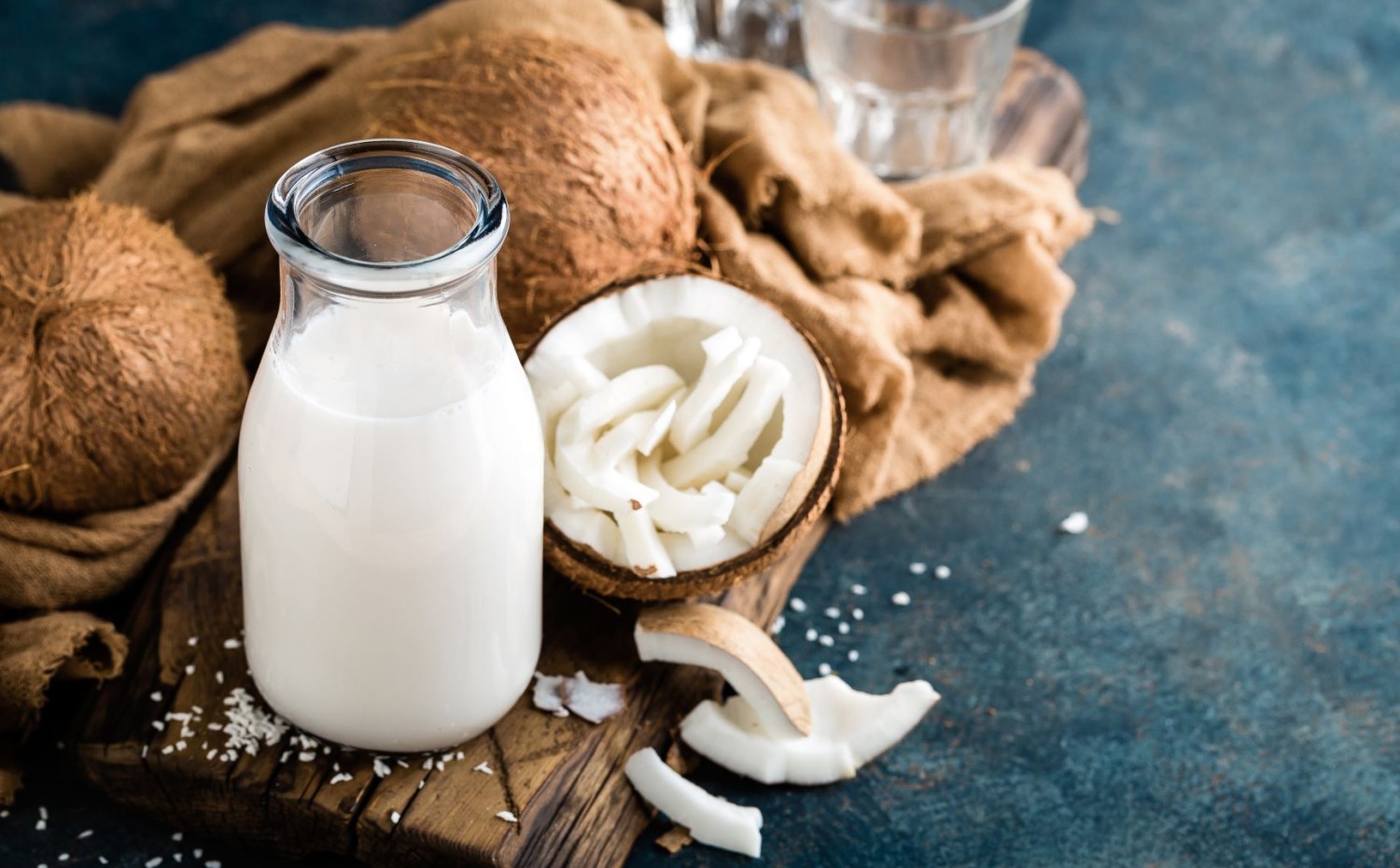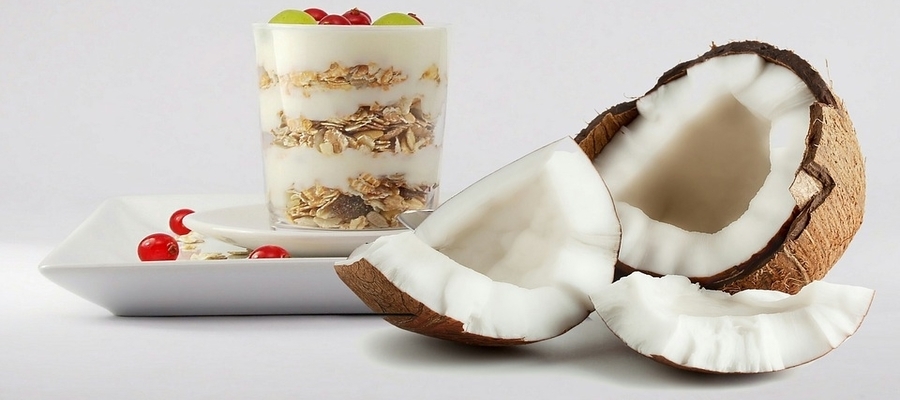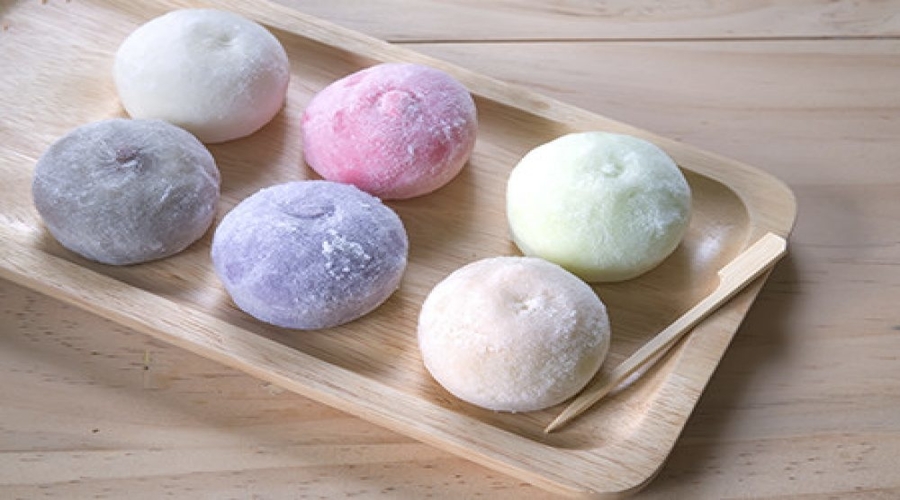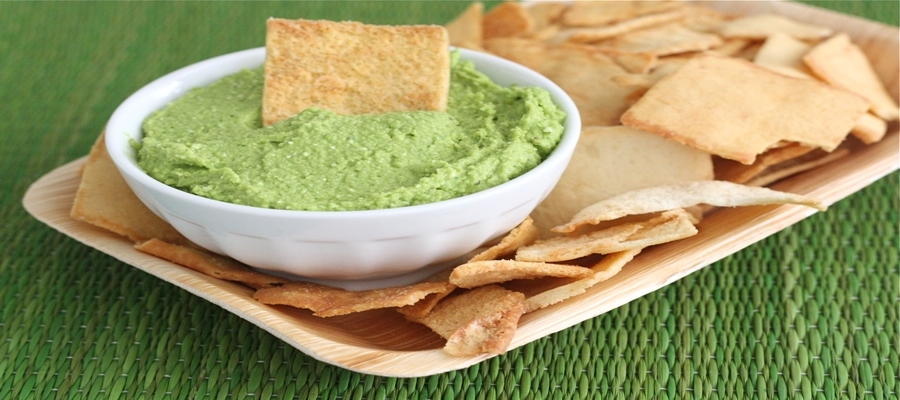Coconut (Cocos nucifera) is a member of the Palm family (Arecaceae). Grown in great quantity in Polynesia, Malaysia, and southern Asia, Spanish explorers called the cocos "grinning face". It received this name because of the little eyes on the base which they thought are similar to a monkey. Classed as fruit and often confused for being a nut, the coconut is mainly a one-seeded drupe. In the Sanskrit language, the coconut palm is known as kalpa vriksha, which means "tree that offers all that is necessary for living" because nearly all parts can be used; milk, flesh, the water, sugar, and oil. The husks and leaves aid as materials in furnishings and decoration. Coconut milk is a white, milky material extracted from the flesh of mature coconuts. It can be beneficial for your health in several ways, such as by stimulating weight loss and lowering cholesterol.
How is it made?

Source: overcomingms.org
Coconut water is the fluid inside a coconut, while the milk comes from the fruit's white flesh. It can be thin or thick. When making thick milk, manufacturers grind the flesh of mature coconuts, then compress it through cheesecloth to extract the liquid. Thick milk keeps more fat than thin milk. Thin coconut milk approaches from the squeezed coconut flesh left inside the cheesecloth. Manufacturers combine it with warm water then force it through cheesecloth a second time. The end liquid is much thinner. In traditional cuisines, thick coconut milk is used in desserts and thick sauces. Thin milk is used in soups and thin sauces. Most canned milk contains a mixture of thin and thick milk. It's also very easy to make coconut milk at home.
Effects on Cholesterol and Heart health
In a six-week study on 50 men, researchers found out that coconut milk porridge reduces “bad” LDL cholesterol more than soy milk porridge. Coconut milk porridge also elevates “good” HDL cholesterol by 18%, contrary to only 3% for soy. Most researches of coconut oil or flakes also found enhancements in “bad” LDL cholesterol, “good” HDL cholesterol and/or triglyceride levels. Although in a few studies, LDL cholesterol levels raised in response to coconut fat, HDL also increased. Triglycerides decreased contrary to other fats.
Health benefits of Coconut Milk
- Coconut milk contains MCTs (medium-chain triglycerides), which researchers have associated with weight loss. MCTs refreshes energy through a process called thermogenesis, or heat production. Few research papers show that MCTs work to reduce body weight and waist size. They may also balance out shaky gut microbiota. A deficiency of this stability may play a vital role in developing obesity.
- Research has combined diets rich in saturated fat with high cholesterol and an increased risk of heart disease. Some people may not review coconut milk to be heart-healthy because of its high-fat content.
- Coconuts contain lauric acid and many researchers believe that lauric acid can assist the immune system. Some researches indicate that lauric acid has antimicrobial and anti-inflammatory properties.


